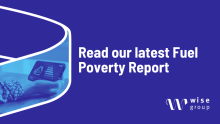When we decided this year that we wanted to do…
PASS – exploring the possibilities
PASS - exploring the possibilities
With the extension of the Presumption Against Short Term Sentences (PASS) from three months to twelve now passed by the Scottish Government, Scottish prisons nearing capacity and a recent report suggesting the existing presumption against short term sentences of under three months has had little impact, we share our views on the next steps.
Disproportionate impact of short term sentences
In many cases, a short term prison sentence of a few months does disproportionate damage lives of those who serve them. Family ties, employment, housing and access to services are all affected when someone spends a short time in custody. In 2017-18, the proportion of custodial sentences of three months or less was 27% while short term prisoners sentenced to 12 months or less account for 12% of the prison population on any given day.
Recently, a mentor told us about a customer who served an eight week custodial sentence followed by four weeks on tag for collecting (but never using) confidential customer data from his employer. The result was that he couldn’t attend work or university, subsequently losing his job, his place in education and the opportunities this afforded him.
The support from our mentors to navigate the system and empower our customers to choose a new path is what our Scotland-wide New Routes mentoring service does, and does well.
Our mentors – half of whom have lived experience of the justice system – have helped over 3,000 people to overcome issues such as homelessness, mental health challenges, addictions, and financial hardship. They build relationships with our customers and their families too, often engaging with the family to support the person. At the end of their journey with a New Routes mentor, 36% of customers say their interpersonal and family relationships improved as result of working with a mentor.
Addressing the highest incarceration rate in Western Europe
A recent report from Crest Advisory suggests that the presumption against short custodial sentences is likely to have had a only modest impact on certain target measures in the Scottish justice system.
With a prison population in Scotland significantly higher than in 2000 and 150 people per 100,000 of the population in custody – the highest in Western Europe – we believe Scotland must think radically in its approach to the justice system.
That’s why the Wise Group welcomes the Scottish Government’s drive for smart justice, and why – with over 10 years supporting, guiding and advocating for people in the justice system – we’re delighted to continue contributing our expertise to our colleagues in the civil service.
The challenge of short term sentences
We find that short term sentences often mean there is limited time to provide the high quality support needed by so many. For example, over two thirds of customers on our programmes across Scotland and North East England need support with their mental health or addictions. And nearly 70% have challenges with relationships, attitudes or behaviours. Addressing these takes time and we often see customers on very short term sentences failing to make progress with support workers in time to make a meaningful change before they are released.
When speaking to colleagues, social workers and other support organisations in our partnership, they all tell us the same thing: Extending the presumption to twelve months on its own won’t significantly reduce the reoffending rate, however the right support will. It’s the quality of support, advocacy and guidance that someone has (whether they are serving a custodial or community sentence) that makes the most significant impact on their likelihood to reoffend.
Building on what’s been achieve so far
We support the extension of presumption up to twelve months – where the judiciary believe it‘s appropriate action to serve the sentence safely in the community.
To achieve a significant reduction in reoffending, the right level of support needs to be available – with a nationwide mentoring, guidance, and advocacy service working in partnership with social work and other public and voluntary organisations.
With the social and economic cost of reoffending in Scotland at £3.2bn, our evidence shows that the reoffending rate for those who successfully complete our New Routes journey is under 10%, compared to 34% where customers aren’t supported.
To build on existing proposals and deliver smart justice, our consultation response highlighted several relevant key points, including:
- We were pleased to see the affirmative order to extend the presumption of short sentences passed by the Scottish Government. We see this as an important step towards the Scottish Government’s ambition to deliver true smart justice across our prison estate and communities.
- The Scottish Government is right to highlight the success that sentencing someone to an alternative to custody, such as a Community Payback Order (CPO), can have. The evidence shows that those serving a short custodial sentence are significantly more likely to be reconvicted than those sentenced to a community alternative.
- The third sector does not seek to replace statutory provision. Rather, we want to find a way of better working in collaboration and complementing each other’s work.
Let’s talk
If you’d like to chat more about the work we do or you think we could work together to reduce offending and divert young people from the justice system, get in touch.











